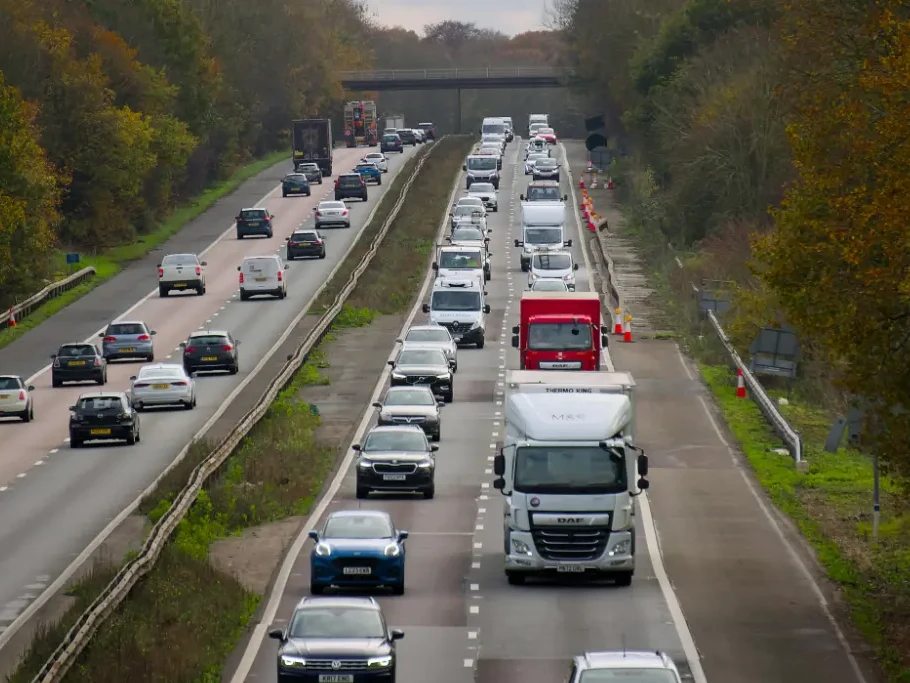Share this article

We know that one of the biggest concerns people have when thinking about making a personal injury claim is money. That’s why we’ve written this practical guide covering everything to do with injury compensation in Scotland – from how fees work, to how compensation is calculated and when you’re likely to receive it.
Whether you’re beginning a claim or just researching, read on for straightforward, honest answers to some of the most common questions we’re asked.
I can’t afford legal advice. Can I still make a personal injury claim?
Yes, you can. No one should have to go without legal support due to financial barriers. That’s why we operate on a no-win, no-fee basis, meaning you can focus on your recovery whilst we fight for your compensation.
What does ‘no win, no fee’ really mean – is there a catch?
Nope, there’s no catch. Here’s how it works –
We’ll start by having an open conversation about your situation to see if your claim has a realistic chance of success. If we don’t believe it can be taken forward, we’ll tell you straight away – and you’re welcome to seek a second opinion elsewhere if you choose. We’d recommend visiting the Law Society to find a solicitor who can help.
If you decide to proceed and your claim is successful, a small success fee will be deducted from your compensation. If the claim doesn’t succeed, you won’t pay a thing.
We believe this is a fair and balanced way to support access to justice, giving your case the focus, preparation, and backing it needs without upfront costs.
How much compensation can I expect to receive for my injuries?
This is one of the most common questions we get asked, and understandably so. Unfortunately, there’s no simple answer.
How much you receive depends on many factors – the seriousness of your injuries, how long you suffered for, and whether you’ve taken time off work, to name just a few.
And in law, the small details matter. For example, which particular area of your back was injured could make a difference in how your claim is valued.
All of these various factors are considered when we value your claim. Once medical evidence and supporting documentation are gathered, your solicitor will be able to give you a more accurate estimate. Until then, it’s difficult to put an exact figure on your claim – which we understand can be frustrating.
I was told I’d get £10,000 in compensation from someone else. Will I actually get that?
Any personal injury claim must be thoroughly investigated – so if you’ve been quoted a figure before your case begins, it’s probably too good to be true.
You might have seen ‘personal injury claims calculators’ online – but where do these figures come from? They’re usually based on the Judicial College Guidelines used by solicitors. These look at historical injury claims and provide lawyers with working estimates based on the seriousness of an injury, age of the claimant, and more.
The guidelines are set by courts in England & Wales – Scots law is different, so using an online claims calculator will likely give you an unrealistic valuation. In any case, it’s best to ask a qualified personal injury solicitor if you have questions about how your case was valued.
How much of my compensation will I actually receive – are there any hidden costs?
We have a professional and ethical duty of care to our clients, which includes being transparent about costs – so you shouldn’t be surprised by any deductions in your final settlement.
There are certain things that need to be paid whether the claim wins or loses, these are known as outlays. Outlays need to be paid to run the claim and can include things like the cost of independent medical reports, expert reports, court administration fees, etc.
You will be told about these at each stage. Any of these costs that we can’t recover from the third party will be deducted from your compensation.
If your case is successful, you will likely be charged a success fee. Exactly how much will depend on the firm, but there is a threshold. The threshold is set by law, the Civil Litigation Act, as follows:
- A tiered cap of 20% applies for the first £100,000 of damages
- 10% for the next £400,000
- 5% for damages over £500,000
I can’t afford to wait until my case is finished. Can I get compensation now?
Sometimes, it may be necessary to award you part of your compensation before the case is finished. This is called an interim payment. Typically, these are granted when:
- Your injuries are serious and have significantly affected your life post-accident
- The other party has admitted responsibility
- There is a more urgent need for the compensation. For example, if you need medical specialists, ongoing care, adaptive equipment, have extensive travel costs or other significant expenses
- The amount you’ve requested is reasonable to the other party
It’s important to note that interim payments are taken off your final settlement amount. You should always discuss with your file handler if this is something you’re considering.
How long will it take to receive personal injury compensation?
Again, unfortunately there is no straightforward answer to this.
It all depends on how your case progresses. Since every claim is different, it’s difficult to predict exactly when it will be settled.
With minor injuries and smaller claims, the third party may accept fault, and the case can be resolved quickly. When this happens, we may receive a settlement offer early on – a few months after you contact us, for example.
Sometimes things come up that can delay the outcome, such as new evidence or legal processes which take time. For example, when calculating more complex factors such as your loss of earnings, etc.
Once a settlement offer is agreed, the third party has up to five weeks to process and send the compensation.
How will I receive my personal injury compensation?
We send settlement by enclosed cheque. Other payment methods may be available for a small fee – you can discuss these with your claim handler.
Do you get taxed on personal injury compensation?
No, there are laws which mean you don’t get taxed on personal injury compensation. This applies whether it’s a lump sum or if you received interim payments.
What you can expect moving forward
We understand how important it is to have clarity when it comes to legal costs, timelines, and compensation. You’ll never receive an unrealistic guarantee from us about the outcome of your case, and we’ll always aim to be clear about our fees, our process, and what you can expect to receive at the end.
Every case is different, and whilst we can’t guarantee the outcome, we can guarantee that your claim will be handled with professionalism, transparency, and care from day one.
Still have questions?
Check out these useful links:
Maximising Your Personal Injury Claim: A Step-by-Step Guide
Claiming Compensation For Care: What Every Injured Person Needs to Know
What Happens Next In Your Personal Injury Claim
Gildeas Solicitors is a recognised law firm specialising in personal injury claims, supporting you throughout Scotland from our offices in Glasgow and Edinburgh. We’re passionate about what we do, whilst putting our clients’ interests first. That’s why we make personal injury personal.
Considering our services? Call our dedicated team today on 0141 331 6070.






